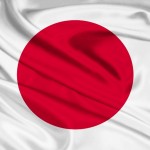 The world may be on the verge of a historic breakthrough in the quest to eradicate infectious diseases once thought incurable, and Japan needs to be a key player, said Mark Dybul, an executive of the Global Fund to Fight AIDS, Tuberculosis and Malaria.
The world may be on the verge of a historic breakthrough in the quest to eradicate infectious diseases once thought incurable, and Japan needs to be a key player, said Mark Dybul, an executive of the Global Fund to Fight AIDS, Tuberculosis and Malaria.
“For the first time in history, we have the ability to not (only reduce) but end public health threats such as malaria and tuberculous, diseases that have been with us for thousands of years,” Dybul, executive director of the Geneva-based nonprofit organization, told The Japan Times on Friday.
“Basically, the current generation has the opportunity to end these diseases for their grandchildren — or to be known as the generation that had the opportunity and let it go,” he said.
But it all depends on whether donors, including Japan, continue providing funding. In terms of governmental aid, Tokyo has provided the fifth-largest amount of financial support to the NPO over an 11-year period through last December, at around $1.74 billion (¥175 billion).
And Japan still has an important role to play in wiping out infectious diseases, Dybul said, voicing gratitude for the assistance to date and acknowledging he is aware that the nation’s economic downturn poses constraints.
“In the past couple of years, understandably, there have been difficult financial times,” he said. “(Japan’s support is) not as strong as it once was, but the relationship (with us) is very strong, and we’re hopeful that we’ll continue that relationship.”
The present situation offers “a tremendous chance for countries like Japan to be part of (the) historic moment (when major diseases can be eradicated)” and have a huge impact in Africa, he said, who previously served as the U.S. global AIDS coordinator from 2006 to 2009.
In the past few years, the world has made drastic medical headway in combatting malaria, including, for instance, the development of insecticide-coated bedding nets that not only prevent the disease-carrying mosquitoes from getting inside but actually kill them, he noted.
According to a 2011 World Heath Organization report, the global mortality rate from malaria in Africa dropped some 33 percent from 2005 — an achievement the U.N. entity attributed to beefed up preventive measures and more widespread use of special medicines to fight the disease.
Diagnostic tests also have improved. The advent of so-called dried blood spots now allows scientists to determine from a single drop of blood whether children have been infected with malaria. Anti-HIV drugs have progressed as well, with one dose per day considered sufficient.
According to a UNAIDS report, worldwide AIDS-related deaths in 2011 amounted to 1.7 million, down 24 percent from 2005. But the situation remains particularly worrisome in sub-Saharan Africa, where an estimated 1.2 million people died of AIDS-related complications in 2011 — accounting for 70 percent of deaths from the disease worldwide.
At the Tokyo International Conference on African Development that started Saturday in Yokohama, Dybul’s global fund is co-organizing a side event to call on the world to continue the fight against lethal infections.
“I hope (Tokyo) could provide us with (the) maximum amount of financial support that is allowable within its system,” Dybul said, “because this is what the heads of states from Africa are saying is important to them.”
Source: The Japan Times – News

















